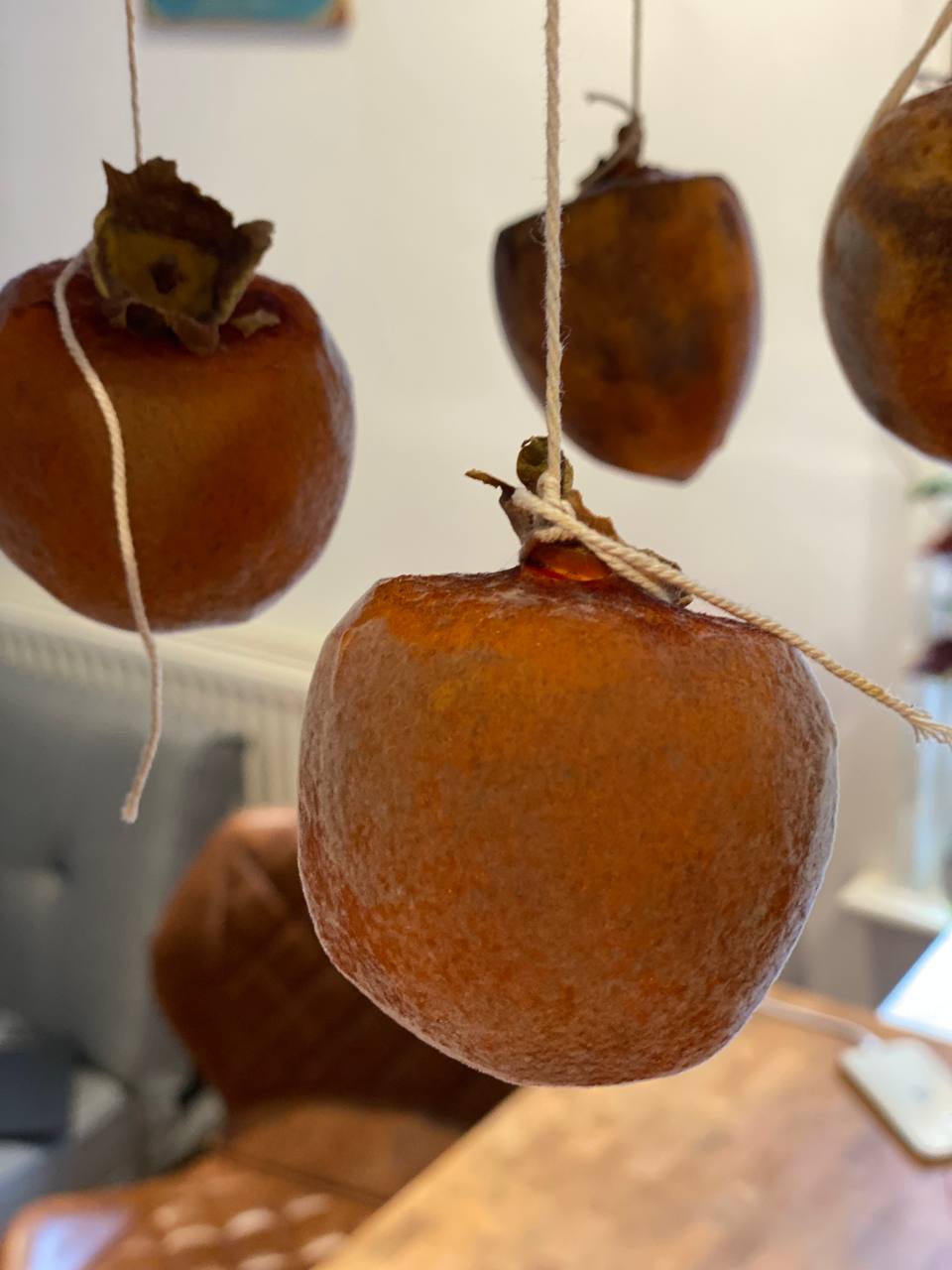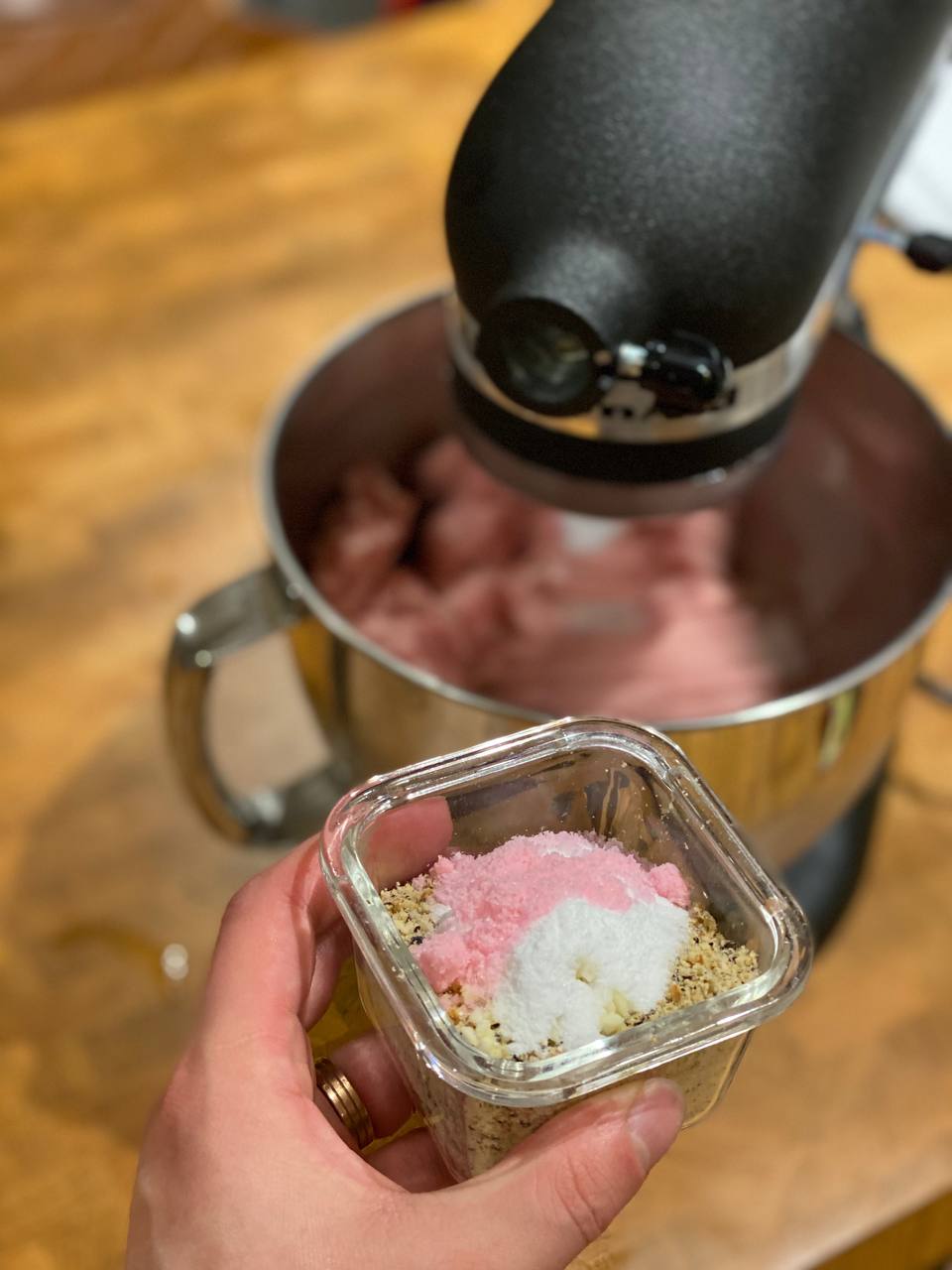TUESDAY TRIAGE #70
by Vadim Drobinin ¶
Your weekly crème de la crème of the Internet is here!
16.11.2021 (read in browser)
-
Intro
Whatever is on my mind this week. -
Things I enjoyed reading
Ten-ish articles I found worth reading. -
Things I didn't know last Tuesday
Ten-ish facts I didn't know when I wrote the previous edition. -
Book of the week
Some thoughts on the latest book I've read.
On sausages ¶
Last week I kicked-off the hoshigaki season and sadly they all died in less than a week.
Now that's quite discouraging, but I will try again. Wasting money on ingredients is less of a deal than potentially getting poisoned, and I still learn something new.

In the meantime, while I gain the courage to hang them up again, I probably went a bit too far and started a completely different project: fermented sausages.
Usually proper sausage-making involves a simple but space-consuming setup, like a drying chamber where these sausages can hang in piece for weeks or even months, giving bacteria time to produce all those lovely flavours.
We don't have space (yet) for such setup, and as you can see from my hoshigaki adventure, humidity here is too high. After hours of research I found a way out.
Let's look into the way sausage fermentation works.
You grind meat, mix it with spices and flavourings, add some curing salts and fermentation cultures:

Then you stuff it into a casing:

And then let it ferment at relatively warm temperatures so those cultures could turn carbs into lactic acid and aid both shelf life and flavours. As I wanted to make it as precise as possible, I fermented them in a sous vide for 24 hours at 37ºC.

Then you usually hang sausages to dry for some time to get rid of redundant water. As I already finished my fermentation though, I first pasteurised the sausages in the sous vide at 55ºC for a few hours to stop the fermentation.

And as now they're technically cooked and ready to consume, I just put them into fridge and now turn on daily basis. That way (hopefully) the redundant water would still escape, albeit in lower amounts, but if in a few days I find that it's not enough, I will hot smoke them on a grill.
Stay tuned.
Things I enjoyed reading ¶
1. Scattered Thoughts on Why I Waste My Own Time by @MarcusBuffett ¶
A very good way to kick off the week: a selection of thoughts and reasoning behind one's desire to waste time. I pretty much feel the same way about being able to collect myself in the face of a deadline or some pressuring task, but otherwise doomscrolling often feels like a more preferred option.
There have been times where some task has seemed so important, that it was able to overshadow the time-wasting apps. When I was going to Hack Reactor and felt a pressing need to get a job so I didn’t have to go back to USC, I didn’t spend my free time wastefully. When I was trying to create a startup with a couple friends, I didn’t have any problem eliminating the time-wasters from my day. But getting in these modes doesn’t seem like a long-term solution. I’d like to choose chess over reddit for the rest of my life, but it doesn’t overpower the pull of reddit by it being more meaningful alone.
A good exercise (at least for iOS users) is to replace icons of apps you use most of the time with shortcuts (using the same icons) which would count the tap and redirect you to something akin Wikipedia or Weather to prevent through mindlessly wandering through Instagram. Didn't help me much, though.
2. The burgeoning business of OnlyFans consulting by @zzcrockett ¶
When there is a demand, there surely is supply, and even a niche of OnlyFans consulting seems to grow quite rapidly. It doesn't seem much different comparing to pretty much all other SEO consultants out there, but probably calls for some different ways to research one's target audience.
Rothfield faced a bleak future before the age of 18.
After growing up in a household that she says “Stephen King would shudder at,” the teen ended up homeless and destitute in San Antonio, Texas.
Then, one day in 2005, she came across a classified ad that would change her life: a job posting for “adult voice actresses.”
I am mostly fascinated by the fact that among their OnlyFans clients are even quite "innocent" people, like chefs and musicians. Maybe it's about time I make an account to post my recipes (won't be cheap though!).
3. "This project will only take 2 hours" by @austinzhenley ¶
A hilarious story about estimating time it'd take to write a program to monitor clipboard for URLs and log them automatically. Students thought it'd take between 2 to 4 hours, while in fact there are so many edge cases to consider, it is not a quite project at all.
I too run into the issue of underestimating the complexity of projects on first glance. I do it a lot actually.
I've started using it as a thought experiment exercise for project management. Whenever I think something is extremely simple, I walk through it step by step to uncover the complexities, design decisions, use cases, and potential features that I missed.
This is also a good metric to distinguish aspiring software engineers from more experienced ones. The longer I interact with code, the more sceptical I am of any time estimations, and usually it proves to take way more effort and iterations to build something decent than people think initially.
4. America’s Real ‘Wokeness’ Divide by @olgakhazan ¶
This is a nice attempt at summarising the current culture, and as it mostly (for now) affects the States, it has a profound effect on the Internet as a community. Sometimes I feel like I miss the old Internet, full of IRC chats and simple websites, even though it's less about technology and more about the community itself. The divide felt less before, even though it wasn't smaller -- it's just the entry point was harder to reach.
The Economist recently defined wokeness as “a loose constellation of ideas that is changing the way that mostly white, educated, left-leaning Americans view the world.” The thinking, or at least the impression, is that normal people who care about bread-and-butter economic issues go to college and pop out not caring about bread or butter, but instead worrying about gender pronouns and cultural appropriation. According to these sorts of arguments, people who never go to college stay reasonable, normal, or—depending on how you look at it—asleep.
I guess we will see in what direction everything changes in the next decade.
5. An inside look into the illicit ad industry by @ariadneconill ¶
I never thought the ad industry could be that interesting, mostly because I always was on the other side of the screen, fighting with ads by the means of pi-holes and adblockers. However the actual engineering efforts that go into building scalable systems and fraud prevention mechanics worth reading about, it's lots of work indeed.
I figured that was coming when the FBI contacted the person I was working for, asking if we knew anything about our advertising being featured on said torrent website. What ultimately resulted in the shutdown of the website, however, was quite funny: the owner of it was greedy, so the FBI offered to buy ads from him directly. He set up a new ad spot on the torrent website, and then sent bank wire instructions to the FBI agent investigating him, at which point they seized the website and shut it down.
The money part of the equation is the same as in any other illicit business though, from torrents to Darknet. No surprise here.
6. The CIA Is Trying to Recruit Gen Z—and Doesn’t Care If They’re All Over Social Media by Jessica M. Goldstein ¶
I was somewhat curious how do the secret agencies operate (and recruit!) this days, when everyone has dozens of online traces, and modern technologies are capable of finding a person's Facebook account based on a blurry picture. The answer is, the just have to deal with it (who'd have thought, right?):
I’m disappointed not to be getting an alias and a disguise—I was hoping wigs would be involved, like maybe Keri Russell’s season-six redhead-with-bangs—but it turns out that, in spycraft as in life, the truth is the best lie. “We incorporate aliases consistent with biometric realities,” said Douglas London, a 34-year veteran of the CIA’s Clandestine Service, the elite branch that runs all of the Agency’s undercover operations.
The story itself is pretty funny too, as apparently there is a big difference between recruiting people a few decades ago and dealing with current generations.
7. Don’t be spooky by @therealadam ¶
A worthy piece of advice and something I suffered a lot from in the past. There are managers out there who just love dropping you a message "Let's catch-up tomorrow at 1 pm" and then you have to spend 20 hours thinking what did you do wrong. Don't be like them.
It’s possibly the best advice for managers I’ve given so far. When you’re communicating with your team, lead with context and reassurance. Never message someone on your team, “let’s talk when you get a minute”. That’s void of information and scary as heck!
Instead you could be as brief but way more specific and at least give a few key points. It's not like there is an NDA or something (if there is, it's still OK).
8. How I Lost My Fear of Flying by Mario Vargas Llosa ¶
Not going to lie, despite not flying for almost two years, I thoroughly enjoyed it during our last trips to Italy. At the same time, I easily see myself getting more and more concerned about this way of traveling over the coming years, as I grow older and more conscious of one's mortality. This is a great story about different people differently overcoming this fear:
It was an amulet that guaranteed him a peaceful and safe flight. He’d taken this book on his first flight and it would later accompany him on all other flights, because intuition, fantasy or madness told him that it was this novelistic talisman and not the smooth running of the engines or the skill of the pilots that kept the planes he travelled in free of all harm and mishap.
On that note, a very common argument is to mention that mortality rate among car passengers is higher than of those flying, and rest assured, I am freaking out in a car way more than in a plane.
9. Japanese Philosophies That’ll Help You Spend Money Consciously by Rahul Chowdhury ¶
Adding to the collection of philosophical thoughts and concepts from Japan, a few more to help you save some money:
Chisoku talks about being content with what you already have.
We often end up buying more things than necessary because we either get sold on clever marketing or get caught up in temptation.
I have mixed feelings about it. While I can easily wear the same t-shirt for a decade, and easily ignore clever marketing, there is no way I resist the temptation. So if I wake up thinking that it'd be cool to get a 3D printer and make cooking moulds, it's pretty much consider done (even though it might take a few years to actually happen).
10. Why is Houseplant Advice So Bad? by dirtwise ¶
This title could be applied to pretty much anything, starting with programming advice, but seems like in case of plants there is just not enough data in the Internet:
The thing to remember about advice is that people usually offer it based on positive experience: I do this and it works. But this is incomplete in many cases because it leaves out all the other options that may or may not work better. If I drive half the speed limit and claim I’ve never received a speeding ticket, that’s hardly good info. What we need is negative experience: I drove 5-10% over the speed limit, never had a ticket, but when I went over 10%, I had two tickets in two years. Now we’re narrowing things down to the optimal conditions.
Bear it in mind next time you read a yet another success story (although not only about plants).
Things I didn't know last Tuesday ¶
1. The Irish Crown Jewels heist ¶
I wish someone made this story into a movie, but there was this collection of royal jewels in Ireland and they went missing, and still aren't found.
Upon the discovery of the theft, the king’s visit to Dublin Castle was postponed. He was furious. “Politically it was a huge embarrassment. These things were emblematic of British rule in Ireland,” says Derham. “So their loss became symbolic of the disappearance of the British reins of Ireland.” A reward for £1,000—around $140,000 today—was issued. It was never claimed.
I strongly recommend checking out the link for the full story though, it's really entertaining.
2. Bunmu portraits ¶
If you think of Korean portraits, you probably imagine a very typical painting:

And I didn't know that there is a solid reasoning behind this style:
The varying levels of detail that different elements of Bunmu portraits received from their creators bespeaks the priorities of Korean society. “The rest of the body,” Han said, “is usually rendered more abstract and conceptual.” Clothing tended to be painted in flat, monotonous strokes of color. Only ceremonial garb and other emblems like rank badges — symbols that denoted the sitter’s social or political status — was given additional detail from the artist.
3. Etaoin shrdlu ¶
Back then, in the times of type-casting machines, typos had to be fixed by hand or whole lines would be discarded. The latter was easire, so to make the line long enough to proceed operators would run their finger down the first columns of the keyboard. Usually it'd be fixed by proofreaders but sometimes it got overlooked.
Etaoin shrdlu is a nonsense phrase that had sometimes appeared in print accidentally in the days of "hot type" publishing because of a custom of type-casting machine operators to fill out and discard lines of type when an error was made.

The letters are ordered in the approximate order of their frequency.
4. Bit rot ¶
This year the Merriam-Webster dictionary added new 450 words, and "bit rot" is one of them.
bit rot: the tendency for digital information to degrade or become unusable over time. This kind of data degradation or corruption can make images and audio recordings distort and documents impossible to read or open.
It's not mentioned here, but I am a strong believer that the same applies to code, and over time it becomes unusable.
5. Tremella fuciformis ¶
Apparently this mushroom was (is?) relatively popular in Russia, albeit I don't remember seeing it or trying it:
Tremella fuciformis is a species of fungus; it produces white, frond-like, gelatinous basidiocarps (fruiting bodies). It is widespread, especially in the tropics, where it can be found on the dead branches of broadleaf trees. This fungus is commercially cultivated and is one of the most popular fungi in the cuisine and medicine of China.

As it's tasteless, in China they add it to desserts for its texture, but seems like in Russia it was sold pickled as a starter.
6. Deadly tomato ¶
For more than 200 years Europeans were afraid of tomatoes.
A nickname for the fruit was the “poison apple” because it was thought that aristocrats got sick and died after eating them, but the truth of the matter was that wealthy Europeans used pewter plates, which were high in lead content. Because tomatoes are so high in acidity, when placed on this particular tableware, the fruit would leach lead from the plate, resulting in many deaths from lead poisoning.
Also kind of makes me scared of any vintage plates and goblets from charity shops. Should be careful with tomatoes around them.
7. Ève Curie ¶
I didn't know Marie and Pierre Curie had a daughter who decided not to become a scientist.
Ève Curie was the younger daughter of Marie Skłodowska-Curie and Pierre Curie. Her sister was Irène Joliot-Curie and her brother-in-law Frédéric Joliot-Curie.

So her parents, sister, brother-in-law and husband all got Nobel Prizes in their fields. She wrote books and worked as a journalist.
8. Colonche ¶
If making kombucha is not enough for you anymore, consider hunting for some cacti plants and use them to make something similar to tepache (probably).
Colonche is an alcoholic red coloured drink made by Mexicans for thousands of years with tuna, the fruits of "nopal" (Opuntia cacti), especially with tuna cardona, the fruits of Opuntia streptacantha.
"Tuna" here is not a fish by the way, thought I'd mention that so you don't attempt at making a cactus garum with fish instead.
9. Ben Franklin's walking stick ¶
A scientist had a hollow walking stick filled with oil and used it to "calm down" waves: that's pretty convenient.
Franklin doubted this, but in London on a day of strong winds and rough waves on a large pond, he tried an experiment, dropping a little oil on the water. Nothing happened. Realizing he had applied the oil on the pond's leeward side where the waves drove the oil back to shore, he tried the windward side. Though no more than a teaspoonful, the oil formed a thin film that spread and calmed a quarter of the pond, rendering it "smooth as a looking glass."
Now, whenever in the country, Franklin contrived to carry oil in the hollow of his bamboo cane, "magically" stilling turbulent streams as opportunities (audiences) presented themselves.
Probably these days pouring pretty much anything into open water won't be faced calmly, but back then it did the trick.
10. Feria de Brujeria festival ¶
There is a village in Spain famous for its witchcraft history and every year they choose a Witch of the Year.
La Tia Casca may have been the last witch to be killed in Trasmoz, but the tradition of witchcraft seems to be alive and well in the Spanish village. Every June, during the Feria de Brujeria festival, a market sells lotions and potions made from the healing and hallucinogenic herbs and plants that grow in the surrounding Moncayo mountains. Actors re-enact historical scenes, such as the rounding up and torture of presumed witches. And one lucky person gets named as the Witch of the Year.
The village is quite small though, so chances to get the title are pretty high. Also it's in the middle of nowhere, so that helps too.
Book of the week ¶
Among many people who changed the world of food there are a few not that famous, at least to a foreign reader.
And by "foreign readers" I mean folks outside of the UK, obviously.
One of them stands out: think Julia Child, but for both Great Britain and Europe, born into an upper-class family, and yet very different: an ex-student of arts, and then an actress in Paris, who eventually ran away with a married man off to Greece, and then moved to Cairo where she worked for the British government.
She pretty much changed the way folks on the island cooked after the Second World War, namely by writing a classic book on Mediterranean cooking, and yearls later Artemis Cooper wrote her biography Writing at the Kitchen Table:
What struck Elizabeth was the sheer amount of hard labour that producing such food entailed. Potatoes, sprouts and cabbage all had to be peeled and prepared for the Sunday lunch, and each boiled up separately on top of the stove and cooked till flabby – which was not a very economical use of fuel. Elizabeth suggested that the weekly hunk of ration meat be stewed with the vegetables, which would have meant less work and less fuel. ‘“The children,” said Janet in a chilly voice, “look forward to their Sunday roast. We can’t deprive them of it.” It wasn’t for me to try and deflect Janet from what she conceived to be her duty.’
One day however, ‘I got fed up with the loathsome job of making the traditional-style gravy to which Janet had been taught to add the cabbage water as well as some sort of thickening. Deceitfully, I chucked the cabbage water into the garden … and added to the meat juices instead a glass of cheap red wine. Janet had no objection to this at first, but suddenly became alarmed at the way the children’ (then aged six and four) ‘spooned the wine-flavoured sauce into their “mouths with such evident relish.’
Elizabeth assured her friend that her children would not turn into juvenile alcoholics, since all the alcohol had evaporated in the cooking; but Janet was not convinced. ‘Back we had to go to that barbarous gravy routine. And so it went on. Back-breaking cleaning of vegetables, boiling of stodgy puddings, painful waste of fuel. I had always thought it impossible not to enjoy cooking, but now it had indeed become that drudgery of which so many English women complain all their lives.’
The book isn't particularly easy to read, and the story isn't that easy either, but it gives some really great insights into the British lives circa 40s-50s, as well as the overall motivation of observing a path of someone dedicated to explore the world of cooking so much (the most enjoyable chapter for me was her travel through Italy, as it mostly consisted of names of dishes she has tried).
Thank you and see you in a week! ¶
If you have any questions, or want to suggest a link for the next newsletter, please drop me a message on Twitter or reply to this email.
Cheers! 🍸